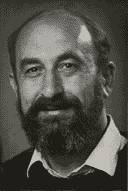
'My Top Six' (Jewish Chronicle Magazine, June 1990)
Chaim Bermant chooses his six favourite Jewish storytellers
God. To begin at the beginning, and I mean the beginning, one must start with God, or whoever it was who wrote the Bible.
For in a lifetime of reading I know of nothing to compare to the narrative power of Genesis, and especially the story of Joseph and
his brethren. I suppose I must have read it a hundred times, but, possibly because it also evokes the atmosphere of my childhood,
it continues to thrill me every time I come back to it.
Genesis made all the bullying and hectoring and boredom of my cheder years tolerable, even enjoyable. Of all the translations I
have come across‹new ones seem to appear every year I know nothing to match the King James version.
Heinrich Heine. I can already hear protests that he wasn't really Jewish, and that he became a Christian to secure 'a ticket
to European civilisation.' But he was never accepted as a Christian, and never ceased to be a Jew in his sympathies, his outlook, or
his responses. He could bring a gentleness even to the sound of German, and I love his poetry, his prose and his travelogues.
He was one of the wittiest men who ever put pen to paper, and also one of the most vindictive. But as he said towards the end of
his short and tragic life, 'God will forgive me, it's his metier.'
Primo Levi. My admiration of Primo Levi is coloured by my knowledge of the man, for in moral terms he was a giant. I think
he was perhaps the greatest writer on the Holocaust, for though he had been through hell, he wrote without self pity or even rancour.
He does not preach forgiveness or forgetfulness, but he does suggest a need to avoid bitterness and his characters emerge from their
torments not only with their souls and their sanity intact, but also with their sense of humour.
He left one with a feeling of reassurance that the Jew was indestructible, yet, by a strange irony of fate, he took his own life.
Josephus. I am not sure if he was a hero or a traitor, and there are serious doubts about his veracity as a historian,
but never mind his veracity, consider his style, for Josephus was a marvellous writer who at times approached the level of Gibbons.
He was at home in Jewish and Greek culture and brought the literary traditions of both to bear on his work.
His fame rests on two works, his Antiquities of the Jews and The Wars of the Jews. The former, which runs to some 20 volumes, is
largely a digest of the Bible and Apocrypha, and is not always an improvement on the original, but the latter, which often touches
on events he claims to have witnessed ‹such as the Roman siege of Jerusalem‹ is among the greatest books I have read.
Sholem Aleichem. For humour, gaiety, colour, warmth, pathos and truth. Peretz wrote with greater economy, Mendele with
greater authority, but Sholem Aleichem was the ultimate master. Open his pages and the shtetl comes alive. One can almost smell
its musty odours.
He can be enjoyed even in English, but to be fully appreciated he must be studied in the original. Not all his work is of uniform
quality, for poverty compelled him to write more than he had to say, so that he was frequently repetitive, but he is still the one
good reason for learning Yiddish.
Israel Zangwill. If Zangwill is recalled at all it is mainly for Children of the Ghetto, a huge, overrich, cholent of a book,
Dickensian in its range of characters, its humour and pathos, plots and subplots, in its very size.
I prefer The King of the Schnorrers, a small, spare masterpiece which only Zangwill could have written and which is one of the
funniest books in the English language.
|